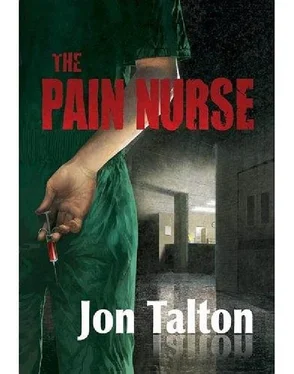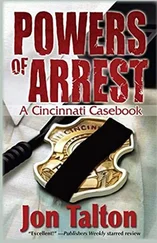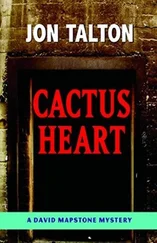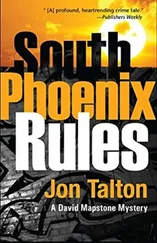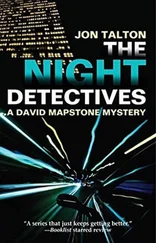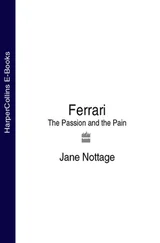“Internal affairs must have been hard. Other cops don’t like you.”
“That’s true,” he said. “But there’s a freedom to it, if you do it right. There are two kinds of Internal Investigations cops-the yes men, and the ones who believe in getting the facts and serving the public and your fellow officers. You want to make the bad cops go away and make sure the good ones stay. You have to be willing to ask important people embarrassing questions sometimes, and that upsets the bosses. But the chief has had my back.”
Cheryl Beth gave him a gentle laugh. “You sound like an idealist.”
Will laughed and shook his head. “An idealist and a philosopher. And a realist. That’s a good cop. Dodds is that way, I give him that. But you can never let the idealist or philosopher part show, because you’re surrounded by colleagues who believe the world is fucked. Pardon my language. They’re the realists.”
“That’s too bad. Have you ever shot someone?” She was instantly sorry she had asked.
“I have no problem killing bad humans.”
He said it dispassionately, then quickly asked about the politics of her job. “Me? I fight the bureaucracy, but mostly I try to put people at ease, make them laugh. Get them to trust me. I ask myself, ‘How do you get people to do things they’ve never done before?’”
“You mean the bosses?”
“Bosses, patients, doctors, nurses.”
Finally the neuro-rehab entrance became unavoidable, and she pulled under the overhang.
“Thank you,” Will said. “I had…”
“I know.”
“Tomorrow’s Christmas eve. I couldn’t get out to buy you a Christmas present, so this will have to do.”
He reached in his pocket and handed her a piece of white paper. It was folded into the shape of a card, and on the cover were pencil sketches of a decorated tree and a pretty good likeness of Cheryl Beth in her lab coat and scrubs. “My best gift this Christmas…” was written in block letters. She opened it and read, “is no pain.” It was signed, “Thank you, Cheryl Beth-Will.”
“You drew this?”
He nodded.
“You’re quite an artist.”
“My dad said it was a waste of time. It’s come in handy on a crime scene or two.”
Now she was the one fighting back tears. “Thank you.”
She unbuckled her seat belt and then undid his. “I can’t let you take that inside.” She pointed to the gun.
“There’s a killer on the loose.”
She gave a slight smile and shook her head.
“I’m a police officer.”
“Well, right now the pain nurse is pulling rank.” She opened the glove box and he reluctantly slid the holster and pistol inside. She closed it carefully and locked it.
“Do you trust me, Cheryl Beth?” He turned as much as he could to face her. He looked drained and yet still handsome. She leaned over and kissed his cheek.
“I don’t know,” she said, and opened the door to get the wheelchair.
Cheryl Beth took Will into the neuro-rehab unit, signed the paperwork that showed he had been returned to the ward, and went back to her car. The streetlights illuminated the sleet descending in thousands of vertical needles. Inside the car, she looked again at the makeshift Christmas card, then carefully tucked it into her purse. She smiled and shook her head. She would have to think about this man with his wavy hair and undercover idealism, his surface calm and inner fires.
She pulled carefully out from the overhang and waited while a black SUV sped past. She followed it as it reached the spot where the street hit an abrupt downgrade. Fortunately, she was driving slowly, deep in thought, letting several car lengths gather between them. Suddenly the red taillights ahead of her danced to the left, back to the right, and momentarily out of sight, only to be replaced by headlights. It was the same SUV. The hill had frozen and the vehicle lazily looped its way around and down until it crashed into a parked car. The muffled sound of smashing metal and composites reached her ears. She stopped immediately, called 911 and tried to back up. The road under her offered traction. Ahead was a down-bound street of black ice. She reversed the Saturn and drove around the level drive into the employee garage. She would work until the city came to put salt on the hill and clear away whatever other hapless drivers went down the slalom. She parked and double-checked that the glove box, with its lethal cargo, was locked. Five minutes later, she was inside her cramped office, leafing through the latest paperwork.
Cheryl Beth worried about her patients, especially at night, even when another nurse was covering for her. They came as impersonal consult sheets: a thirty-three-year-old male, motorcycle accident, with fractures of one femur, his pelvis, and elbow. He denied he was in pain and refused to ask for medication. When she talked to him she got little, but his body language was a vivid storyteller, the way he didn’t want to move, the set of his face. He had a name: Ron Morton, he was from Dayton, worked in an auto plant, and his dad had taught him never to show pain, never complain. She could only gauge the time between injections by the look on his face.
A forty-six-year-old female with ovarian cancer, metastasized throughout her abdomen and liver. Her name was, with cruel perversity, Hope-Hope Mundy and she wanted to live to see her daughter graduate from high school. The doc had her on a continuous morphine drip, which also left her in a stupor. When it was cut back she moaned all the time, and the other patients complained. Cheryl Beth adjusted the doses daily, sat with her and listened, taught her how to relax through her breathing, put cool compresses on her forehead.
The new consults came every day. Pain made people angry, stoic, sometimes darkly comic. The woman in the busy ER who had screamed, “Who do I have to give a blowjob to, to get an epidural.” Fortunately, Cheryl Beth had learned how to give epidurals years ago, so no oral sex was required. Often they were in the cruelest agony. They were grateful for the smallest things. Some days she thought it would drive her insane, especially when the suffering was caused by the hospital’s inattention. Most days she knew she could help them. Sometimes she caught addicts, trying to scam new pain meds.
She always had the hardest cases: the most painful shootings, stabbings, chest tubes, spinal and lower back problems, abdominal surgeries, and cancers. It seemed as if Will’s job had been that way, too. But his “consults” were dead people. His symptoms were “MOs.” She was still on a high from the day: the latent danger of the jail, the way Will had elicited information from Lennie and Darlene. She would make a good detective, he had said. She doubted that. If she did his job, she would be too haunted by the ghosts of the dead and their very live, hurting families. She would be afraid of getting hurt. But just like her job, to do it well, he must have relied on skill, instinct, and, truth be told, bending the rules when it was necessary to help people.
She tried to think systemically about all she had seen and heard, as if it were a new consult. And she tried to listen to her gut. Will seemed so sure: the killer was this Bud Chambers. He was sure of it as a police detective, and surer of it as the avenger for the woman he had loved. It was still not so clear to Cheryl Beth. Her mind was branded with the memory of finding Christine-why would this man have killed a doctor he didn’t even know? It was branded with the brief note she had dug out of Judd Mason’s trash, written in the neat script. Obviously the police had found more about this strange, silent man-Mason was in jail for the murder. But, even there, she just wasn’t sure, wasn’t sure. What about Gary? He had lost his mind-enough to kill Christine? Yet she knew Gary’s doctorish scrawl and he was incapable of writing as clearly as the script on the threatening note. Then there was Denise’s self-described paranoid thought about the digital medicine project-it could have threatened any of the medical personnel at Memorial with something to hide, whether it was mistakes or stealing drugs.
Читать дальше
